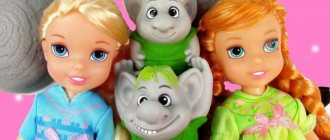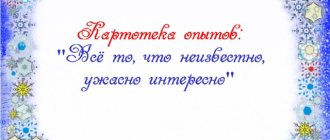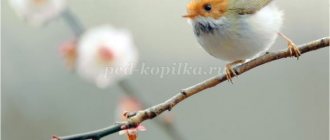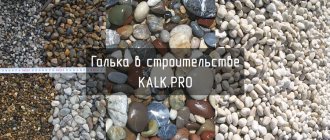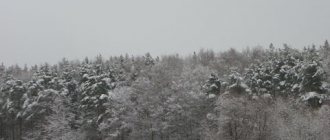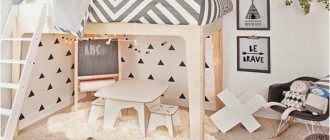What to tell preschoolers about spring.
In spring, the sun begins to warm the soil, but the weather is still changeable. Warm days suddenly give way to cold, snowy ones. It’s not for nothing that people say: spring and autumn—there are eight weather conditions per day. And yet, the hillocks and edges gradually thaw, and the first thawed patches appear. The sun rises higher and higher above the earth, giving more and more heat, awakening nature from its winter sleep. The snow begins to melt in the fields, and the first streams gurgle. White clouds appear in the sky. They are called cumulus clouds.
On rivers, ponds and lakes, cracks appear in the ice from the spring heat. Ice drift begins on the rivers. The ice floes collide, pile on top of each other, and float with the flow until they melt. Rivers overflow with water and overflow their banks - a flood occurs. All these are signs of the onset of spring in inanimate nature, and the main one is the melting of snow.
Plants in spring With changes in inanimate nature, changes occur in the lives of plants, animals and people. Every living thing on Earth rejoices in spring. The forest awakens, fills with sounds and movement. Drifts of wet snow still lie on the northern slopes, while the southern slopes are already smoking and drying out. Plants begin to stretch upward, trying to get as much sunlight as possible. Plant roots absorb moisture from the warm soil, which dissolves the nutrients accumulated in the trunks. Plant stems pass nutrition to the buds, which will soon become leaves and flowers. Another noticeable change in nature in spring is that buds bloom on bushes and trees. The leaves of willow, alder, aspen, maple, and birch begin to turn green. The first grass appears on the edges. Snowdrops are blooming. Red lungwort flowers appear. A little time will pass, and its flowers will turn purple and then blue.
Birds in the spring The first insects appear and among them are sleepy flies that slowly crawl and bask in the sun. The time has come for migratory birds to return: there is food for them - insects and last year's seeds, which are easy to find on the soil freed from snow. In early March, rooks and starlings arrive earlier than others, followed by larks, lapwings, cuckoos, swallows, and swifts. In spring the weather changes frequently. Sometimes it snows and the birds cannot find food for themselves. Last year's seeds find themselves under the snow again, and the insects hide. At this time, many birds die from hunger, so in the spring, in cold weather, they need to be fed. In the spring, birds build nests, which serve them to incubate eggs and feed chicks. Cuckoos do not build nests, but lay their eggs in the nests of other birds. Chicks need food, and birds get it by destroying a huge number of insects harmful to humans. Be careful of bird nests. Do not come close to them, and, especially, do not pick up the chicks. Birds are afraid of the smell of humans and do not return to the nest. Chicks die without the help of their parents.
Animals in the spring With the arrival of spring, there is a lot of food for animals, so in the spring they give birth to cubs. In early spring, rabbits, squirrels, wolf cubs, fox cubs and many other animals are born. Immediately after birth, the rabbits begin to play, run and learn to hide from enemies. They don't even notice how they are left without supervision. The hare has such rich and nutritious milk that, after feeding her cubs, she can leave them for two to three days. Within two weeks after birth, the bunnies become completely independent. They look for their own food - branches, bark of bushes, grass, shoots of young trees. After hibernation, bears, hedgehogs, and badgers appear. Their cubs come out with them. Mothers continue to feed them milk, but soon the animals learn to independently look for insects, last year's berries, plant bulbs and young grass. In the spring, many animals begin to shed - the thick winter coat changes to a thinner one, and the hare, ermine, weasel, squirrel and arctic fox change the color of their fur coats. Partridges also lose their white feathers, and in their place brown and gray ones grow. Moose and roe deer grow new antlers.
Spring stories. L. Pestin
STARLING
The air is still and cool. Light frost. There are grains of ice on last year's leaf, and thin ice glistens in the ruts. It seems that spring has stopped at the threshold, and winter does not want to go away - if only we could pass through the earth with blizzards as a farewell!
I'm walking through the grove. Quiet. Suddenly a starling flew from a tree straight onto the road. He shook himself, ruffled his feathers, and quickly jumped up and down on the frost-bound ground, as if he wanted to say:
-And here we are!
FIRST
He was born in the morning. He parted last year's leaves, looked out and froze, surprised: there was snow all around.
“It’s cold here,” the willow said to the snowdrop. “I should sit in the ground, it’s warmer there.” Upstart!
And the snowdrop spread its petals and stretched upward. He was the first. He went on reconnaissance.
SNOWDrops.
In the forest, in the copses and groves, snow is still hidden here and there. Snowdrops appeared in the thawed areas. And some broke through a thin layer of snow, looked out, turned blue: there was no time, life goes on.
CREEK
The stream was born in the forest. He broke out into a spacious meadow and, joyfully. Murmuring like spring, he ran to the river. Young grass began to turn green around her. Every day it became thicker. Then the dandelions sparkled in it with golden splashes.
The waters have receded. The stream has dried up. But in the place where he once fled, life continued. Flowers bloomed and grass grew.
FOR ALL
There are sunny spring bunnies on the windowsill. The girl catches them with her hand.
“Vasya, why is the sun running away?” she asks her brother.
“Because the sun is for everyone,” the boy answers.
Crafts “early spring” for kindergarten
The first days of spring are reflected in children's creativity. We will start our spring crafts by driving away the winter - making a Maslenitsa doll.
Paper Maslenitsa doll
Glue an accordion made of colored paper onto the base of the craft - a cardboard circle. Separately glue the head in the scarf and the flowers.
Spring craft “Maslenitsa”
This spring panel reflects the most important attributes of Maslenitsa - the sun, pancakes, street celebrations.
Spring panel "Maslenitsa"
Early spring craft for seeing off Winter “Maslenitsa doll” made of fabric.
“Maslenitsa doll” made of fabric
Another popular ritual toy is a horse. In Rus' they believed that a magic horse helped the sun to float across the sky. That is why the appearance of light and warmth from the spring sun and the image of a horse are so closely connected in people’s beliefs.
Spring ritual horse
Another ritual toy for early spring is a bast lark. The lark has always been a harbinger of spring, warmth and good changes.
Spring lark made from bast
You can make an “Early Spring” applique from colored paper, cardboard and thin real sticks.
“Early spring” applique with real branches
You can make a spring applique “blossoming apple tree” from colored paper and cotton pads.
“Blooming apple tree” made from cotton pads
Spring craft “Mimosa”
Mimosa is the very personification of early spring. These delicate fluffy balls fill our homes as the first harbingers of warmth and sunshine. A chic and very simple “mimosa” can be made from ordinary millet.
Application "mimosa" from millet
Children in the preparatory group of kindergarten will be able to make a spring applique on a “mimosa” disc. Mimosa balls can be made from lumps of crumpled paper, colored cotton wool or twisted curls of paper - rolls.
Application "mimosa" from rolls
Watch how to make a beautiful card with mimosas in the video:
See how to make a decorative sprig of fluffy mimosa:
Applications on the theme “spring”
You can make a “spring meadow” applique from plain and corrugated paper.
Application “spring meadow”
Look at the video on how to make a beautiful spring craft with birds and birch trees:
From colored cardboard, napkins and plasticine you get a very impressive “Birds at the Nest” craft.
Application “Birds at the nest”
A surprisingly delicate spring applique is obtained from a combination of drawing and appliqué techniques.
Spring drawing and applique
Another option for combining spring applique and pattern. The tree in this applique is made from pieces of crumpled paper.
Application and drawing “Spring”
Here is another spring Easter drawing. Real Easter cake powder gives life and volume to the design.
Spring Easter drawing with Easter cakes
Spring craft “birds” for kindergarten
Nest with birds. We cut the plate in half, cover it with straw, shavings - any material that resembles the base of a bird's nest. We connect the two halves and place birds made from pom-poms inside. Toy eyes and a small cardboard triangular beak help turn a pompom into a bird.
Chicks in the nest
We make a lark from cardboard and colored paper. The lark has a rather modest coloration, but its ringing and cheerful song jubilantly informs us of the beginning of spring.
Spring craft “lark”
Origami lovers may find the video master class “Paper Crane” useful.
You can make very entertaining spring birds from paper and thin sticks.
Spring birds
One of the most long-awaited spring holidays is Easter. For this holiday, you can make a very touching souvenir from a disk, kinder surprise and plasticine.
Souvenir for Easter
Adorable chicks in a nest can be made using the appliqué technique from small pieces of paper.
Chicks in a nest made of pieces of paper
From plastic eggs you can build a very touching spring craft “nest”
Spring craft “nest”
Dyed and plain white eggshells can be used to make a very cute spring "chicken" arrangement.
Spring composition “chickens”
A very touching spring composition “cockerel and hen” is made from eggshells.
Cockerel and hen
You can make a delicate spring composition in eggshells. Paper shavings located inside the shell can become a wonderful nest for a decorative egg and a fluffy Easter chick.
Spring shell decoration
Another wonderful bird family made from natural materials (cones, chestnuts, leaves. We make a nest from real twigs.
Bird family made from natural materials
Look at the video - how to weave a nest:
A very beautiful spring newborn chick in a shell is made using the quilling (paper rolling) technique.
Chick in a shell (quilling)
You can make a charming spring composition “birds in a house” from Kinder Surprise eggs and milk cartons.
Birds in the house
But what colored bunnies can be made from plastic eggs. The picture is complemented by a cheerful orange carrot.
Bunnies made from plastic eggs
You can make a very cute spring chick from ribbons and felt.
Chicken made from ribbons and felt with a flower
Everything about this spring craft “Spring Egg” is beautiful: a frame and stand made of jute, flowers made from ribbons, an image with spring mimosas.
Spring craft made from jute and ribbons
From colored paper you can make a delicate flowering tree - a symbol of spring and the beginning of a new life. The trunk and branches made from a child’s handprint look very touching in this craft.
Spring blooming palm tree
The meaning of folklore
Signs contain the “wisdom of the people”; they are part of folklore. Oral folk art, which also includes proverbs, beliefs and sayings, is a national treasure that reflects the customs, traditions and life of our ancestors. Historically, folklore can be called the basis of world artistic culture. This is where it all began.
Studying different areas of oral folk art has a beneficial effect on the development of children. Namely:
- expands knowledge about the surrounding world, nature, and ancestral culture;
- develops observation skills;
- enriches the vocabulary on the topic being studied;
- develops attention and memory;
- teaches respect for nature.
It is good if a child gets acquainted with folklore in early childhood. First, at 1-2 years old in the form of nursery rhymes, at 3-4 years old in the form of riddles, and at 5-6 years old in the form of signs, folk songs and other, more complex genres. In winter, with children, it is important to consider the topic of folk signs for the winter harvest, in the spring - signs about spring.
DIY spring flowers
If you fold green paper in half, cut it, and then roll it into a tube, you get a very effective basis for creating a spring bouquet. This bouquet can be decorated with daisies, lilies of the valley, or tulips.
Corrugated cardboard tulips
You can make a very delicate and effective spring applique from yellow and green corrugated cardboard.
Spring applique made of corrugated cardboard
Using green paper folded like an accordion, you can make the basis of a chic spring bouquet.
Spring paper bouquet
Cardboard and colored paper make a charming spring bouquet of flowers in a vase.
Spring craft for kindergarten “bouquet of flowers”
A spring bouquet of flowers can also be made from plasticine. We roll pink and red plasticine into thin tubes, which we then slightly flatten and wrap into buds. From these buds we form an applique on paper folded into a “bouquet”.
Spring flowers made of plasticine
Spring window decoration “tulips”
In order to make a spring decoration for the window “tulips” we will need to cut out a tulip blank from paper. Glue tape to the head of the tulip and sprinkle with rhinestones and sparkles.
Tulip with rhinestones and sparkles
We decorate the windows with our tulips.
Tulips on the windows
And if you combine several of the described ideas together, you can arrange a real spring exhibition that will create a joyful mood full of good forebodings.
The video contains several interesting techniques for performing spring crafts:
A sunny horse made of jute is a symbol of spring and the sun.
